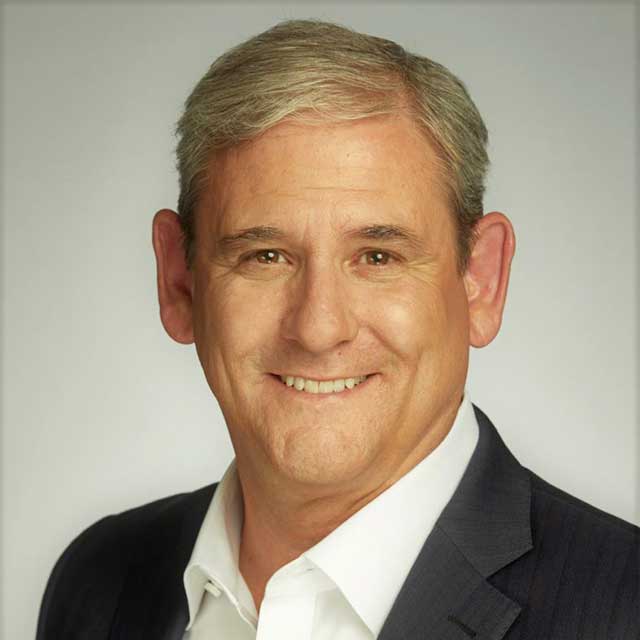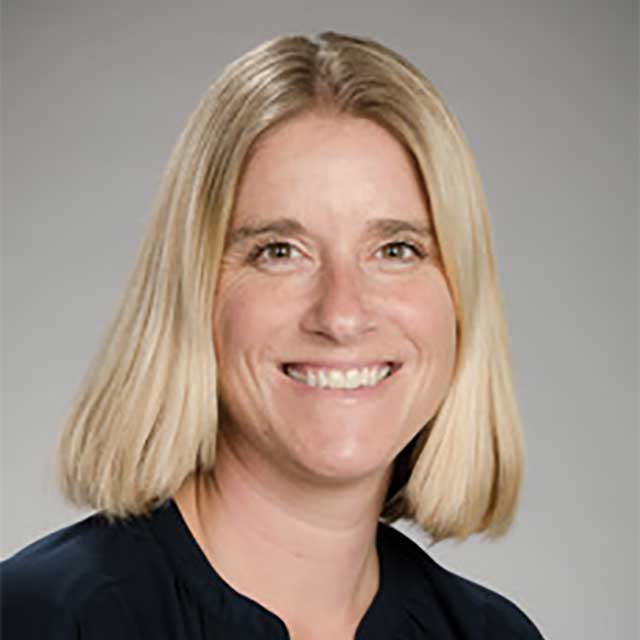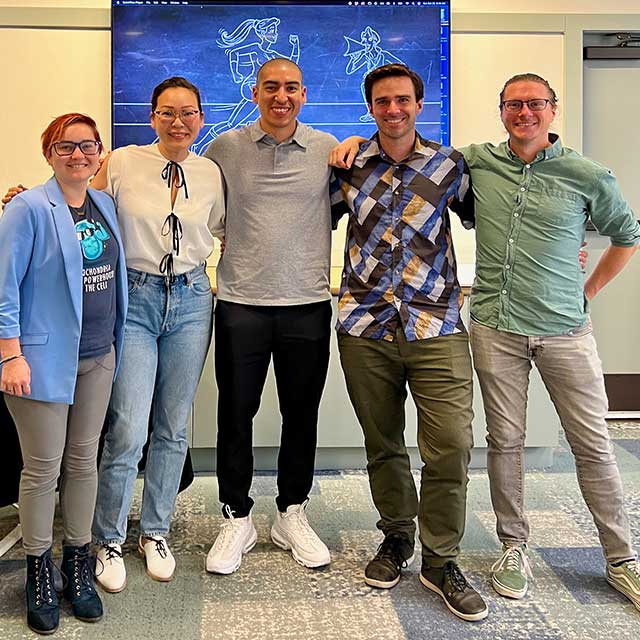
Spring 2024 Newsletter
Leader in the Medical Device Industry Joins the Board of Directors

Keith Grossman
The Foundation is delighted to share that Keith Grossman joined the Board of Directors in October 2022. Keith has 40 years of experience in the medical device field, including serving as CEO of Nevro Corp., which developed a neuromodulation device for chronic pain; Thoratec Corp, which developed the first mechanical circulatory support devices for heart-failure patients and was acquired by Abbott; and Conceptus Inc., a women’s health medical device company that was acquired by Bayer Healthcare. Keith also co-led the medical device investing effort for the life sciences venture capital fund of TPG Capital. He serves on the board of directors of multiple public and private medical device companies.
One aspect of working in the medical device industry that Keith has found particularly compelling is its mission-driven focus. “When I led Thoratec, patients would thank me for our technology — in our case, a small implantable pump that would take over for the left ventricle of the heart in lieu of a heart transplant,” he explained. “It was very rewarding for our entire team to know that we were saving and improving the lives of patients and their families.”
Upon learning about the A.P. Giannini Foundation, Keith was particularly struck by the organization’s commitment not only to funding high-quality postdoctoral research in biomedical science but also to supporting fellows in developing their communication and leadership skills. This two-pronged level of support resonates with Keith who has spent his career working with leaders in different medical specialties.
“I found that those at the top of their respective fields were always not only the best clinicians, but also the best communicators and leaders,” he said. “As technology innovators, we sought out those individuals for collaboration and relied on their expertise to inform our own decision making.”
The Foundation will draw on Keith’s rich experience to ensure that leadership training continues to impart relevant skills. More globally, Keith hopes to bring his strategic acumen to the board of directors and help the foundation to carve its path forward in an ever-changing environment, whatever that may be.
Fellow Studies Early Cellular Pathways that Lead to Alzheimer’s Disease;
Recent Study Shows Promise for a Path to Developing New Therapies

2010 Fellow Jessica Young, Ph.D., is Associate Professor with a background in molecular and cellular biology in the Department of Pathology at University of Washington. The Young Lab is interested in determining the molecular and cellular mechanisms behind genetic risk for Alzheimer’s disease (AD), a neurodegenerative disorder that affects about 10 percent of Americans age 65 and older. Rather than using a mouse model, Jessica’s team has developed an innovative model for AD in the laboratory using human induced pluripotent stem cells (hiPSCs), which capture the genetic background of an individual patient in a dish.
Jessica’s work has focused in part on the SORL1 gene (SORLA), which is strongly associated with the risk of developing AD. In neurons, SORLA is a regulator of an essential cellular process – endosomal trafficking — involved in the transport of proteins throughout the cell. What’s more, SORLA interacts with a multi-protein complex called retromer, which also directs endosomal trafficking. For efficient endosomal trafficking, SORLA and retromer work together, a process that can be impaired in cells that have genetic variants in SORLA. These variants increase the risk of developing AD. In a recent study, Jessica’s team found that it is possible to increase retromer expression in vitro, enhancing its function when it is otherwise impaired by SORLA variants.
“In patients with Alzheimer’s, the process by which a neuron communicates with other cells slows down; this is called synaptic dysfunction,” Jessica explains. “Using human neurons derived from hiPSCs, we think we can enhance how this pathway functions in the face of defects in the genes.”
While there is still much research to be undertaken to determine how these findings might lead to new therapies, Jessica is optimistic that a starting point might be treating patients with mild cognitive impairment before they develop full-fledged AD.
As Jessica reflects on her A.P. Giannini postdoctoral fellowship, she says the support she received was instrumental to her career. At the time, using stem cell models to study genetic risk factors for AD was novel, and she was part of one of the first groups that had a number of different hiPSC lines from individual people. “I learned how to take concepts from population-based biology and model them in a dish, and that work got me the job that I have now,” she says.
Jessica’s hope is that her work will contribute to the basic understanding of neuronal mechanisms that become dysfunctional in AD as well as open up new avenues to test for therapy development.
Current Fellows Attend Leadership Retreat

From L to R: Elisabet Bjanes, Ph.D.; Gloria Yiu, M.D., Ph.D.;
Matthew Romero, Ph.D.; Gary Dixon, Ph.D.; Benjamin Waldman, Ph.D.
In October 2023, the Foundation brought back its in-person Leadership Retreat for second-year fellows. Held over a weekend in Tiburon, CA, the retreat was facilitated by Mari Sciabica, who oversees the foundation’s leadership training. The retreat included interactive workshops on delivering feedback, effective coaching, and delegating as well as opportunities for the fellows to practice these skills with their peers.
During the Saturday morning session, fellows learned a method for delivering feedback, which is designed both to reduce the anxiety associated with delivering feedback in difficult circumstances and to reduce the defensiveness of the recipient. In employing the method, one explains the situation, describes the specific behaviors observed, and explains the impact that the person’s behavior had. For example, a particular situation may have been an agreed-upon deadline for completing an experiment. The behavior may be the failure to complete the experiment on time, and the impact may be an inability to report to collaborators who were expecting results by a certain date. Such conversations end with a discussion of how to move forward.
Mari also introduced fellows to a model for structuring coaching sessions. Fellows learned to approach mentoring sessions by first establishing the goal and determining what the starting point is. The next step is to brainstorm all the possible options for reaching the objective and determining which of these makes the most sense. Such conversations end with an action plan in which specific actions are identified that will make progress toward the ultimate goal.
Delegating skills were another key focus of the retreat. Mari offered fellows a framework for determining which tasks are suitable for delegating and which are better retained. She also guided them on tailoring their delegation approach to match the skills and motivations of the person completing the tasks. Ultimately, fellows spent time practicing the feedback, coaching and delegation techniques through analysis of a case study.
The fellows provided overwhelmingly positive feedback about the retreat. “Although I’ve had over a decade of rigorous scientific bench training, little of the content has specifically targeted how to mentor and lead well,” said Elisabet Bjanes, Ph.D., a 2022 Fellow. “This deficit was directly addressed by the sessions throughout the weekend. I am already implementing the practical applications of active listening in daily conversations.”